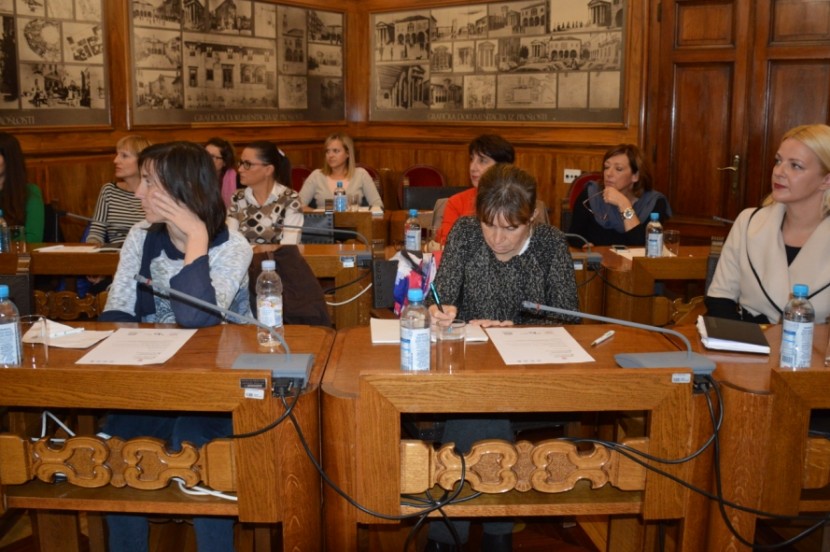European examples of participatory urban development














Urban planner Levente Polyák presented participatory urban planning projects, research and policy development in European cities’ processes of urban regeneration in Rijeka on 25/10/2016 and Pula on 26/10/2016. Polyák presented projects of the Eutropian organisation and examples of revitalization of existing spaces for culture in different European cities to the representatives of local government. By establishing cooperation with the municipalities, NGOs and local communities in the processes of participatory planning, policy development as well as in fundraising, cooperations and communication, Eutropian developed the international know-how for inclusive and sustainable urban regeneration projects by supporting local development through sustainable economic, environmental and social models.
Levente Polyák’s presentation initiated discussions about possibilities and numerous challenges that Rijeka and Pula are facing in the processes of revitalization of existing buildings but also on manners of better cooperation among all involved stakeholders within the mentioned processes that could contribute mutually to the creation of sustainable culture and urban development. Special emphasis was put on revolving models of participatory governance of cultural infrastructure that could contribute to achieving stability of the institutional framework, and could ensure long term usage of public infrastructure and enable inclusion of users in resources' governance, enhance access to culture and creative activities but also open possibilities for social enterpreneurship development and by all that assure the diversity of cultural activities and programmes in the city development.
Levente Polyák studied architecture, urbanism, sociology and art theory in Budapest and Paris, and he was a lecturer at the Moholy-Nagy University of Art and Design, the Budapest University of Technology and the Technische Universität Wien, where he taught urban studies and architectural theory. Levente has worked on urban projects for the New York, Paris, Vienna, Budapest, Rome and Genoa municipalities, and as member of the KÉK – Hungarian Contemporary Architecture Centre, he has organized conferences, festivals and exhibitions dealing with various contemporary urban and architectural phenomena. He was visiting fellow at Columbia University in New York City and at Orange Labs and the École d’Architecture Paris-Malaquais in Paris. He is a doctoral candidate at the Central European University. Between 2012-2016, he has been working on Lakatlan and TUTUR, research and advocacy programs examining policies and methods of temporary use and revitalization of abandoned urban properties. Since 2015, he is engaged in the Interactive Cities (on social media and new urban governance) and Funding the Cooperative City projects (on new economic models for community spaces). Specialized on urban regeneration, cultural development, community participation, local economic development and social innovation, with a special focus on building development scenarios on existing resources. He is founder of the international organization Eutropian engaged in urban planning, urban policies and researches aiming to enhance the processes of urban regeneration of European cities.